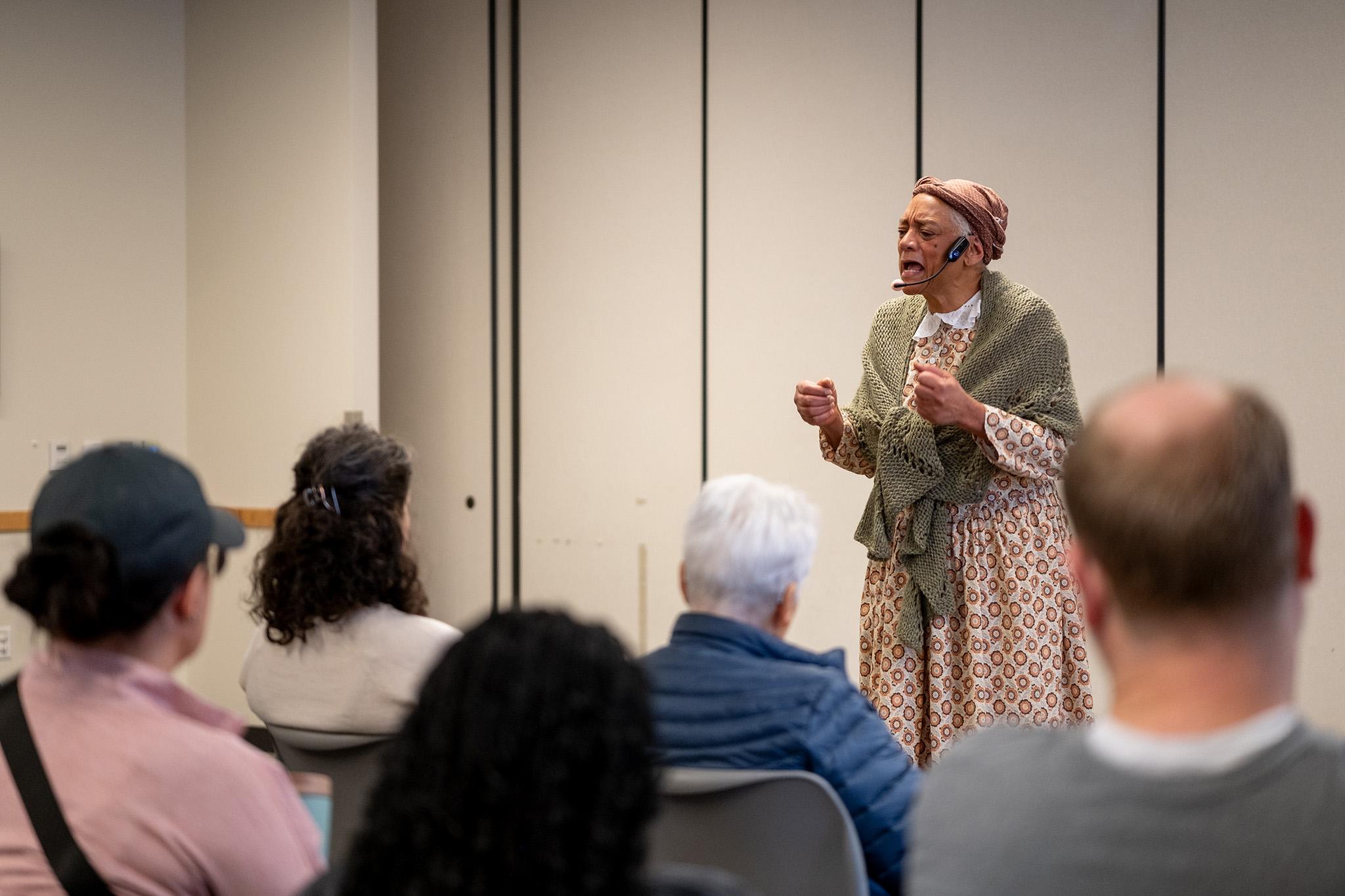
Standing in front of a group of people in a Denver library recently, abolitionist Harriet Tubman explained why a metal weight thrown at her head didn’t kill her.
“So that man, he picked up a weight [that was used for] weighing things, the goods in the store, the gold lead weight. And he threw it after that boy. He missed the boy and he hit me upside the head. And I fell out. When I come to, I was laying on the low bench there.”
It wasn’t Harriet Tubman of course, but scholar/actor Becky Stone, who was dressed as Tubman in a long prairie dress and shawl, and with blackened teeth she’d done herself using stage makeup.
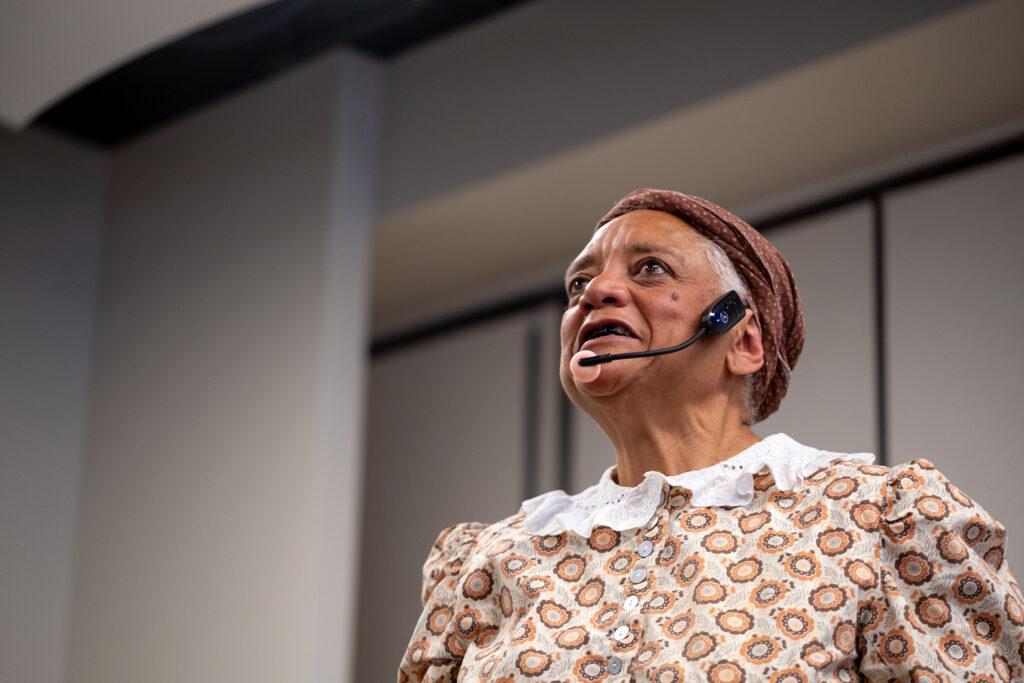
Touching her head, she said in an emotional voice: “They told me probably my hair saved my life. See, I was 11, 12 years old and my hair’d never been cut. It was like a big old bushel basket on my head, and it’d never been brushed and ain’t never washed. If my hands were dirty from work or from eating or cooking, I’d just rub ‘em on my head to get my hands clean. So, my head was thick and kinky and stiff from all the dirt, the grease, and that kept that lead, that weight from crushing my skull.”
That was part of a 40-minute long performance by Stone, who came from near Ashville, North Carolina to be part of Colorado Humanities’ Black History Live Tour, a series of performances in which the actors take on the persona of the person they are depicting.
The style of performance is called Chautauqua, which is a first-person dramatization of a historical figure in which the speaker’s monologue typically lasts 40 minutes – after that the actor takes questions from the audience for about 20 minutes, first as if they were the character they were portraying, then as themselves. It began in the early 1900’s, mainly in small towns, as a way to entertain communities and bring them together.
Jennifer Macias, History Program Coordinator with Colorado Humanities, described the performance as part of its mission “towards making sure that underrepresented populations and stories are visible, present.”
She added: “Chautauqua is such an engaging format that allows people to really, truly see history come to life. It’s great to have lectures and to be able to go and to read these academic books, but it’s an entirely different experience to hear about somebody’s life in their own words, so to speak.”
Introducing Stone last Sunday, Macias placed the performance 20 years after the Civil War. When Stone, 75, a former educator and school counselor who also taught drama in a private school in North Carolina for a decade, took the stage, she began taking on the physical persona of Tubman, an abolitionist who was born Araminta “Minty” Ross and lived from 1822 until 1913, helping approximately 70 enslaved persons find freedom after running for her own in 1849.
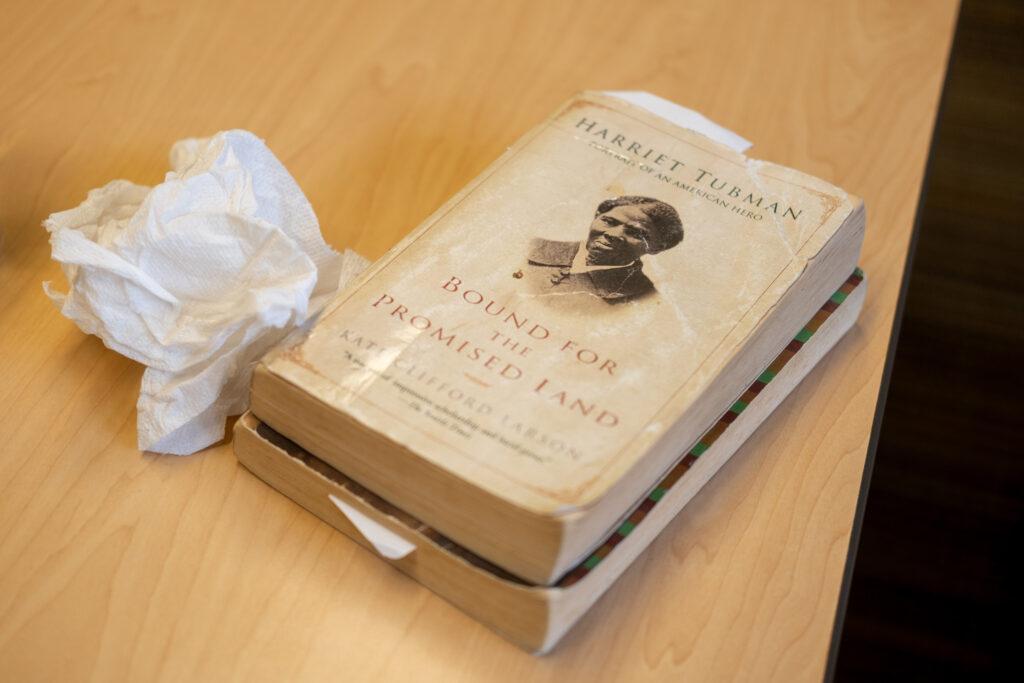
In what she imagined would be Tubman’s voice, she gave reflections on slavery: “You don’t see any end coming to it unless you die or unless you can run and get your own freedom, which is what I was determined to do, but not until I was about 27 years old.”
Keeping in character with a different voice cadence than she’d later speak in as herself, she described some of the lesser-known experiences Harriet Tubman had, including having temporal lobe epilepsy from the blow to her head as a child – a condition that found its way into her performance.
As she continued to share stories about helping other enslaved persons find freedom, she suddenly stopped speaking. Her head tipped to the side and her eyes closed. As she stood motionless before about 50 people in a community room of the Sam Gary branch of Denver Public Library last Sunday afternoon, people in the crowd took quick glances at each other to see if anyone was going to go to the front of the room to check on her.
A few seconds later, Tubman bounced back to life and continued sharing stories. Stone had acted out Tubman’s seizure caused by the temporal lobe epilepsy – one of the ways Chautauqua performances can fill in the blanks an ordinary performance could not.
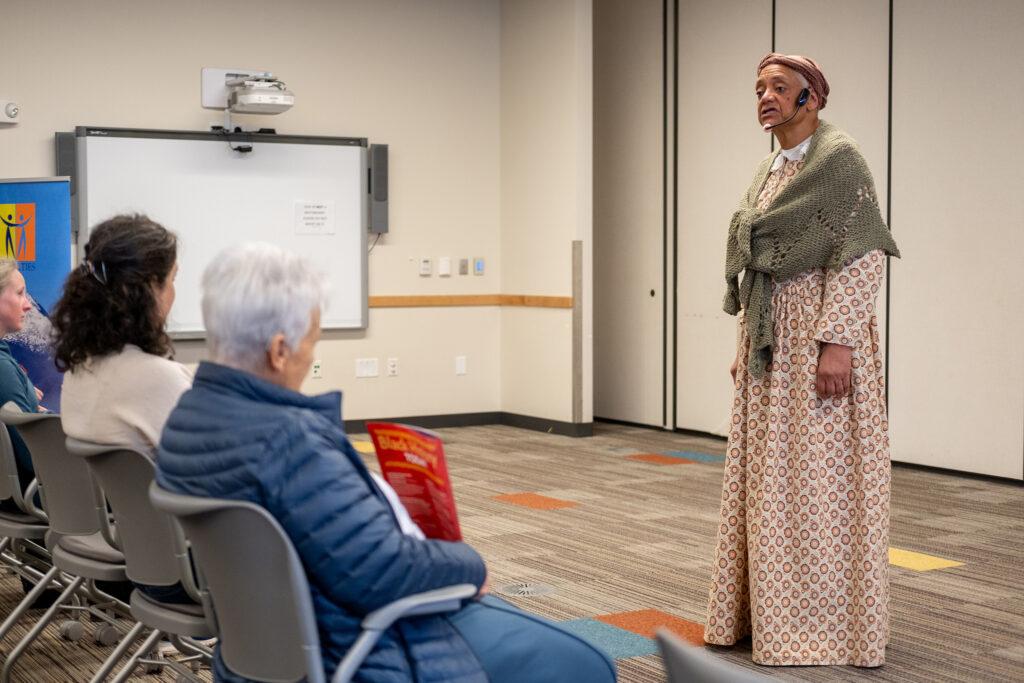
“Certainly during the seizures, I try not to move or anything,” she said during a virtual conversation several days after the performance. “She would suddenly lose consciousness, go to sleep, and then come right back to where she was.”
She did research to learn to portray temporal lobe epilepsy.
“I would ask doctors, ‘If I do this, is this kind of like what the seizure is?’ Because there was no, in the scholarship I’ve read, there was no exact description of it except to say that she fell asleep – that she could be standing in a conversation and somehow lose consciousness,” she said. “So I’ve worked on that and decided the best I could do was what I did … in that performance.”

Besides personifying Tubman, she also does poet/author Maya Angelou and Pauli Murray, a civil rights activist, advocate and Episcopal priest who lived from 1910 until 1985.
She said she spent about a year learning to do a historical figure by reading everything other people wrote about the person as well as finding footage to get an idea of the person’s physical presence, gestures and clothes. She began doing Chautauqua performances in 2003, and did Tubman for the first time in 2006, adding and subtracting to her performance as she learned more about her when new scholarship on the abolitionist became available.
Stone performed as Tubman in Denver, Parker, Colorado Springs and Aurora, with her last shows happening February 8. After that, the program continues with the actor/scholar Marvin Jefferson, who will perform as Louis Armstrong between February 20 and 28 in Greeley, Littleton, Grand Junction and Glenwood Springs.
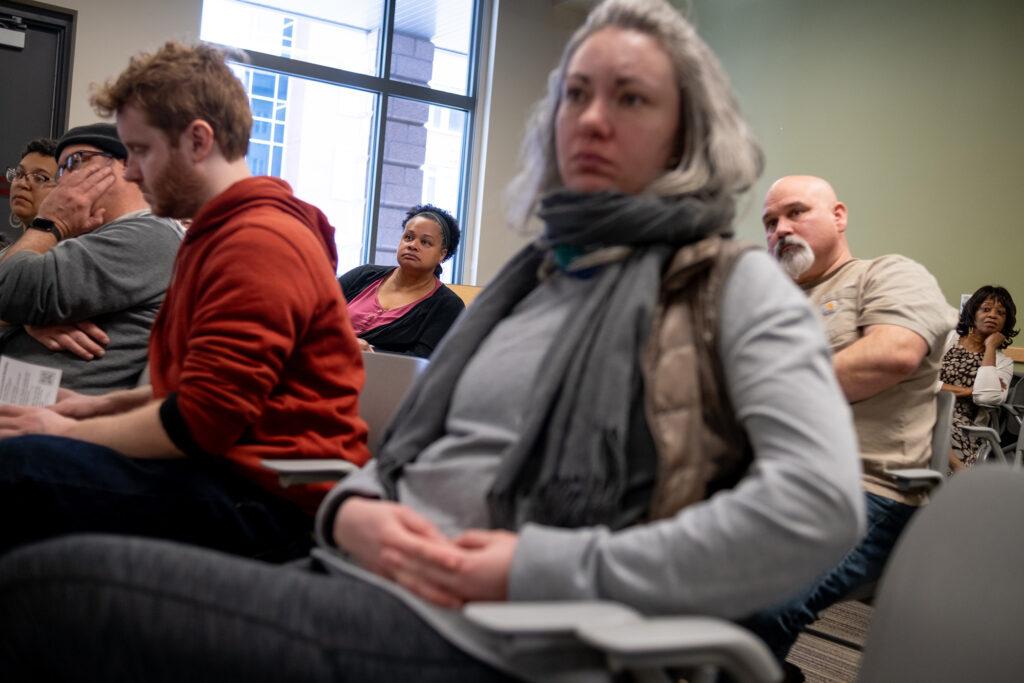
Paraphrasing her other muse, Maya Angelou, Stone said she often heard the poet say words to the effect of: “‘People don’t remember what you say, but they remember how you made them feel.’”
That, she said, is what she hopes she’s accomplished with Tubman and the other historical figures she illuminates: “My goal is to identify with them .. then I feel I’ve done my job.”









